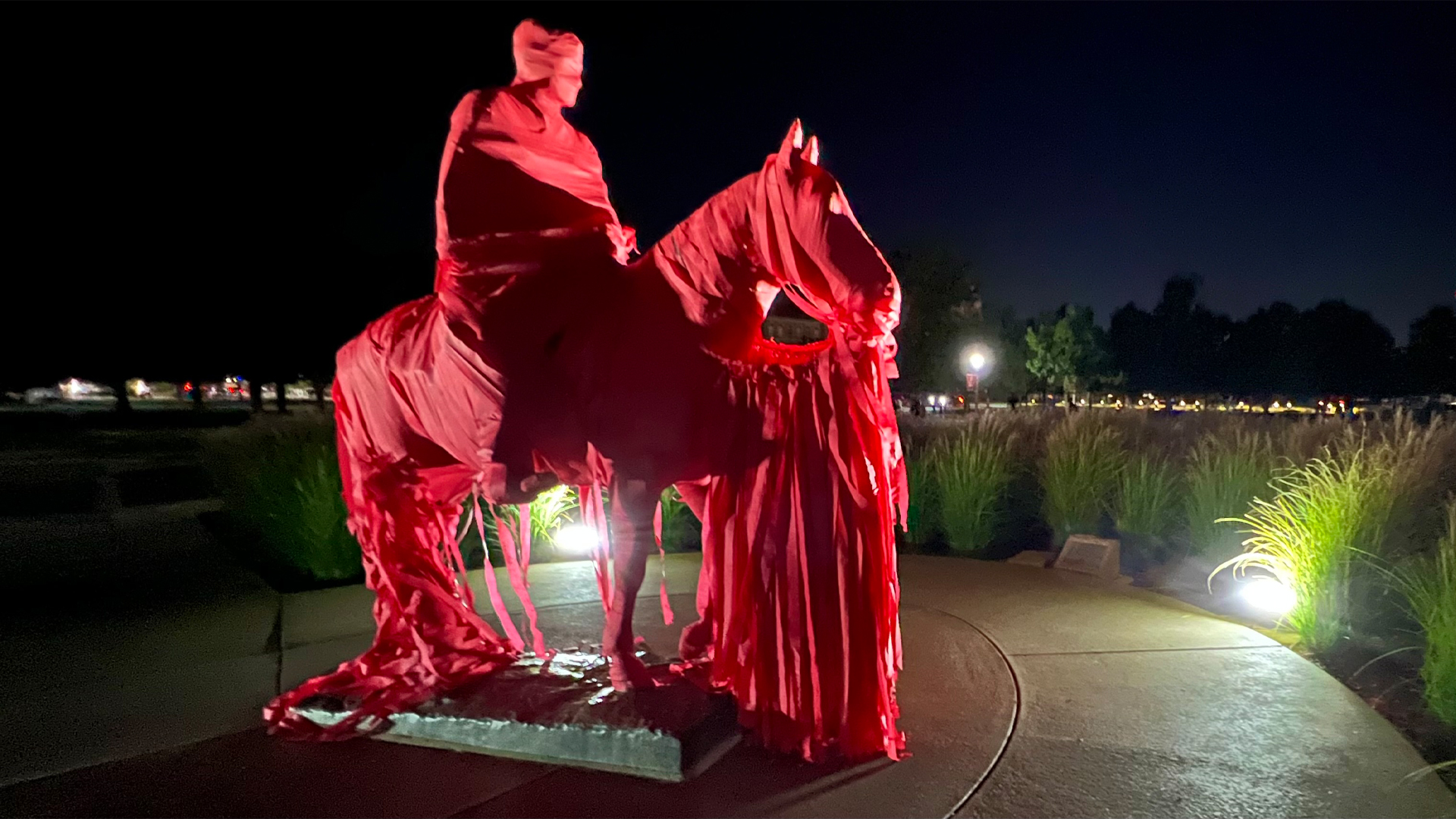Lubbock and Texas voters can give Texas Tech a piece of a new $4 billion endowment and also boost Lubbock’s economy as early voting in the November election is now under way.
The money already exists, so there’s no increase in taxes.
The TUF or Texas University Fund, if approved, sets aside just short of $4 billion for Texas Tech, the University of North Texas, Texas State University and the University of Houston.
‘Amazing to have’
“Oh, my gosh,” said John Osborne, CEO of the Lubbock Economic Development Alliance. “It would be amazing to have that kind of influx of money coming to the university.”
Tech anticipates $44 million in the first year of the new fund. But the impact, Osborne thinks, is much bigger. The money attracts new professors, matching grants, federal research projects and more money coming into Lubbock.
It will also improve opportunities for students.
“They’re not only spending their own money, they’re spending their parents’ money. And they’re oftentimes spending their future money too – all here in our economy,” Osborne said.
James Arnold, president and CEO of First Bank & Trust, said, “I think it’ll prove the adage, ‘So goes Texas Tech, so goes Lubbock.'”
Texas Tech is a big driver for Lubbock’s housing and retail markets, Arnold added.
Speaking of housing
Recent press releases from various sources including a company called ATTOM indicated home sellers made smaller profits recently in Lubbock as compared to other markets. Arnold thinks the TUF, if passed, would make a difference.
“I think it would do nothing but improve it,” Arnold said.
Just new housing alone would create construction jobs plus retailers would sell items to go into the new homes.
Lubbock realtors have three and a half months worth of homes to sell, said Shari Bigham with McDougal Realtors. Not too long ago that number was less than one month. So, the housing market slowed recently – mostly with a rise in interest rates.
“I haven’t slowed down up until probably just this last week,” Bigham noticed. She said the housing market locally had just been that strong.
Lubbock’s median price, she said, is about $239,000.
Bigham thought high-paid professors might look at the Tech Terrace and Rush neighborhoods. Other new staffers might look to Southwest and West Lubbock.
Her customers also do business with pool companies, exterminators, carpet and furniture suppliers, title companies, bankers, and, of course, restaurants and grocery stores.
Although LEDA does not have a specific recent economic analysis of Tech, a report more than 10 years ago said every dollar spent with the university brings in a $16 impact for the state.
TUF and PUF, two different things
The TUF is the latest step for Tech and other schools trying to level the playing field with the University of Texas and Texas A&M which benefit from the massive Permanent University Fund (PUF), dating back to the 1800s.
Tech cannot get a piece of the PUF, worth $30.8 billion in 2022, but schools participating in the PUF cannot request money from the TUF.
The Texas Legislature created the TUF from the state’s surplus earlier this year. But as a constitutional amendment, it must be approved by voters.
Early voting runs until November 3. Click here for information on voting locations in Lubbock County. TUF shows up on the ballot as Proposition 5.
How Tech will use the money
Where does the money go?
Texas Tech will focus the new money on health, energy, agriculture, climate and national security. There are strings attached.
“It’s somewhat restrictive,” said Lawrence Schovanec, president of Texas Tech University in a phone interview with Lubbock Lights. “It has to be related to research.”
Restrictive can be a good thing.
“This money will be spent at Texas Tech University. This TUF is for Texas Tech University, not for the system,” Schovanec explained.
“We believe that we would be hiring 100 to 150 new additional faculty. We are in the process of developing a more specific plan,” Schovanec said.
Next spring, Schovanec will go to Tech’s Board of Regents for approval, assuming Prop. 5 passes. New professors are on the list but so are staffers to support them.
“We would be putting more money into support of students engaged in research. Graduate studies would be a priority, but also that would include undergraduates,” Schovanec said.
Doubling down but not betting on more students
When Tech laid hands on a much smaller pile of cash called NRUF, the National Research University Fund, research expenditures doubled from $130 million to $230 million in 10 years.
With $44 million headed to Lubbock, if the TUF passes, Tech plans to double it again in 5 to 10 years.
“We already were in the top 50 in the nation in producing doctorates, which we want to make sure we’d stay in that category and strengthen it,” Schovanec said.
More professors and graduate students doing more research certainly puts money into Lubbock. But there’s also an indirect financial benefit for West Texas energy and agricultural companies.
“Texas Tech is one of the primary places where many of these companies go to get their research.” Schovanec said.
This may not mean more students, though.
Schovanec hopes the prestige and research money will attract more recruits – but no promises.
“After 2025, the number of high school graduates will drop,” Schovanec said of the so-called enrollment cliff, referring to a predicted drop in the college-age population beginning in 2025.
“You’re already seeing this decrease in the Midwest and Northeast,” Schovanec said.
Cost and benefit
“There will be no new taxes imposed on the citizens of this state,” Schovanec emphasized.
Students contributing to research leads to innovation, Schovanec said, and that leads to stronger, better companies in Texas.
“I would say that Texas Tech has always been known as an institution that produces graduates who meet needs in the workforce. Red Raiders have a reputation of being workforce ready,” Schovanec said.


 Facebook
Facebook